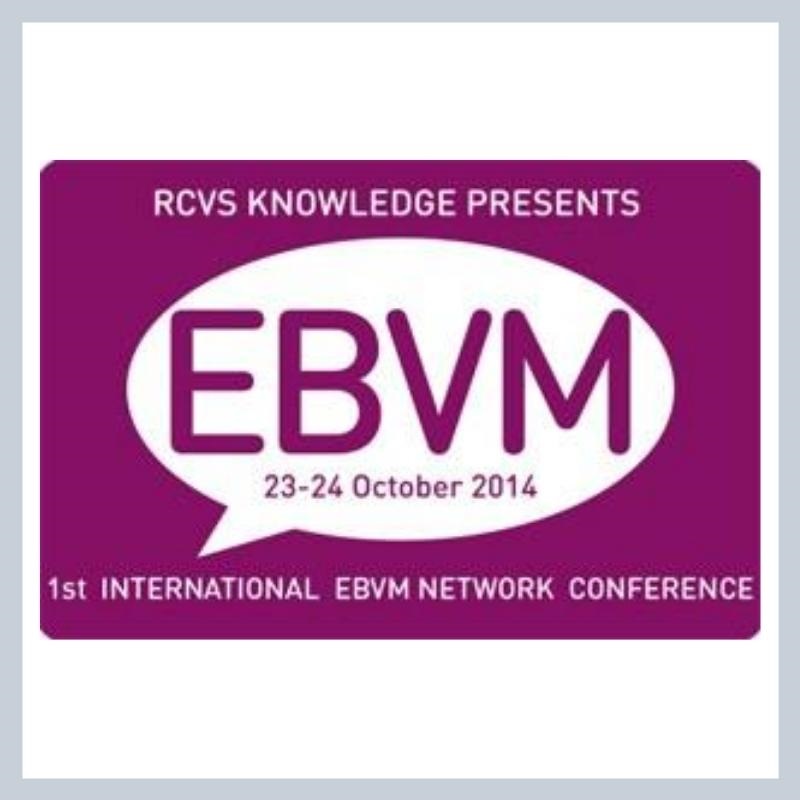First international EBVM conference report

On the 23/24 October, Dr Phil Jones and Suzanna Reynolds attended the first International Evidence based Veterinary Medicine Conference organised by RCVS Knowledge, the independent charity associated with the Royal College of Veterinary Surgeons (RCVS). We weren’t too sure what to expect, but were quite excited to be part of what Nick Royle hopes will be ‘ a quiet revolution’ in veterinary medicine. As we drove into the beautiful Beaumont Estate in Windsor, we started to see that we were in good company as about 250 delegates from all walks of veterinary life- from academia to practice, from the UK to the US and the EU- streamed into Reception. The first day was all about the fundamentals of EBVM- what it is, why it’s important and what the evidence base is for veterinary medicine (much less than for human medicine) with some great talks from researchers highlighting differences between research and the messy reality of practice.
Rachel Dean of the University of Nottingham took us through the steps of EBVM- ‘Ask (a specific question), Acquire (the evidence), Appraise (its quality), Apply (to practice) and Assess (on clinical outcomes). There was a little controversy among the speakers whether vets should listen to ‘drug reps’ but the consensus was that we are all part of one veterinary world, and that the onus is on us, as evidence-based vets, to insist on good evidence. We also heard about some of the resources being created for practitioners- eg Bestbetsforvets, the online database of systematic reviews relevant to veterinary medicine VETSREV and of course, the RCVS library (£35/y for nurses and approx. £88/y for vets). Phil Jones presented the SAVSNET initiative during the session on clinical records, where venomcoding, data-mining clinical records and querying practice databases were also discussed. Many people understand the importance of the data contained in first opinion clinical notes- but the Banfield experience of trying to extract good data from their 850+ pet hospital chain in the USA underlined that the problem with practice management systems is that they are not designed to get good clinical information out! Banfield produce the State of Pet Health report, a great example for us, as SAVSNET aims to create similar maps, that update in real time, for pet disease in the UK. Another interesting talk focussed on emergency presentations- dogs outnumber cats 2:1 and 50% of dogs present with a GI syndrome, whereas cats present with trauma, urinary system and GI problems.
The evening concluded with a poster session and presentation and a party. The second day focussed on how the EBVM network could progress, with talks on producing (much consensus needed) and implementing evidence-based clinical guidelines such as RECOVER for CPR. Take home messages from these were that guidelines need to be evidence based, consensus based and authoritative- that chest compressions should be 100-120/min and that any shampoo will do in treating atopic dermatitis! From start to finish, the conference was organised beautifully by the RCVS Knowledge team and the Beaumont Estate.
We came away from the conference feeling that we had learnt a lot about evidence based medicine, that we had made some good friends and had a great time, largely due to the warmth and enthusiasm of the RCVS Knowledge team. We raise a glass to them to toast their first conference, the launch of the new Journal of Evidence based Veterinary Practice (JEVP Elsevier) and the work of the fledgling Knowledge groups.